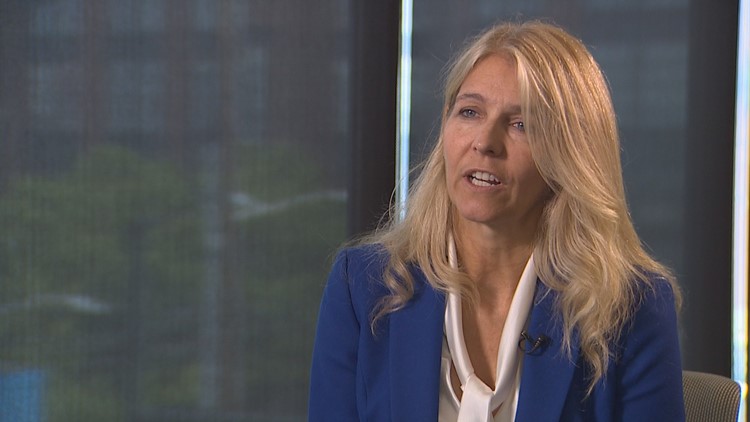As Washington state struggles to work through its rape kit backlog, estimated at 10,000 older kits, State Representative Tina Orwall, D-Des Moines and a team from Washington State Patrol traveled to Ohio this month to learn more about how that state cleared its rape kit backlog.
“Seven years ago, we literally had a call for all untested rape kits,” said Tom Stickrath, superintendent of the Ohio Bureau of Criminal Investigation. “They began flooding by the thousands, to the point where ultimately we tested 14,000 kits.”
Stickrath met with the team from Washington state last week, including Orwall, Captain Monica Alexander of Washington State Patrol and four scientists from WSP’s crime labs.
He explained a three-pronged approach contributed to Ohio’s success, a strategy that included adding lab staff, using additional robots and technology, as well as conducting a detailed analysis of how to boost efficiency.
“We brought private sector experts in and public sector experts in, and we literally analyzed step by step how we did forensic biology and DNA,” said Stickrath.
“The scientists came back to (Ohio) Attorney General DeWine and me and said ‘we can do this faster without sacrificing quality; we can reduce the number of steps, we can reduce the number of decision points, we can reduce the number of handoffs,' and so we embarked on that mission,” said Stickrath.
Since then, Ohio has not only made headlines for its rape kit testing, but it's also become a model for Washington state where it’s still taking more than 500 days to test lower priority kits, and several months to test high priority cases, according to WSP.
“I just know the urgency of having the kits tested, and I think the hope I bring is there's a model that will allow us to process all kits within three weeks, that's the ideal,” said Orwall, referencing the estimated 25 days it takes Ohio to currently process its new kits.
“They've really found a way to work in these team models using newer equipment to really expediate analyzing DNA including for sexual assault kits,” said Orwall who noted lab staff in Ohio specialize in mastering specific duties.
“They do one component of a sexual assault kit, and they get very effective at that,” she said.
Currently, in Washington state, lab staff are trained on all components of DNA testing, a process that can take two-and-a-half to three years to complete.
“They found a way through the team model to bring people on within months,” Orwall said.
“The Washington State Patrol is now working to put together an action plan of how to apply other states' success here. Ultimately that will turn into a proposal put before the state legislature next session.
“I think, again, we need to look at what would we need to purchase, what tools would the lab need to make these changes, and how do they fit into our model,” said Orwall. “But, it is so urgent, we have so many sexual assault kits to test and we really need to find new ways of doing things.”
Orwall says part of the long-term solution could include expanding the Vancouver crime lab in Southwest Washington. She estimates investing in new equipment and staff could cost several million dollars, money that would need be approved by the legislature.
In Ohio, efficiency in the lab has meant more successful prosecutions and justice for victims of sexual assault.
According to the Ohio Attorney General’s Office, 300 serial offenders were linked by DNA to around 1,127 crimes in the CODIS (Combined DNA Index System) database used by the FBI.
Stickrath recalled one suspect being linked to more than a dozen rapes following DNA testing.
“We know there’s a serial nature to this crime. We’re having a very high rate of hits with the FBI system, so this is about getting dangerous offenders off the streets, and it helps all crimes,” said Orwall.
Washington State Attorney’s General is currently working to assess a more accurate estimate of the older rape kit backlog, based on inventory information from 176 law enforcement agencies in the state. New numbers could come out as early as next month.



